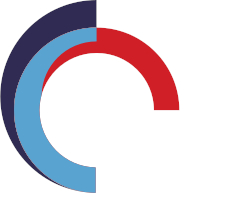Master of Information Technology
Course Overview
The Master of Information Technology (MIT) program is an advanced degree designed for professionals and graduates looking to deepen their expertise and broaden their horizons in the realm of information technology. Building upon foundational IT knowledge, this program delves into more specialized areas, exploring the latest advancements, methodologies, and challenges of the IT industry. Offering specialisations in either networking, cyber security, data science and Management of IT, the MIT comprises 16 units delivered over 4 terms culminating in one of four specialisations. Students with an undergraduate degree in IT can also complete the degree in 1.5 years by enrolling in the accelerated option and completing 12 units, gaining advanced standing for the first four units.
Course Structure
Entry Requirement
| Admission Requirements | |
|---|---|
| Minimum Age to Apply | All applicants must be aged 18 years or over at the time of course commencement. |
| Academic Entry Requirements | Successful completion of a Bachelor degree or higher in any discipline from an institution listed in the Australian Government Country Education Profiles, or Successful completion of a Graduate Diploma (AQF Level 8 or equivalent) in a subject area relevant to the intended program of study applied for from an institution listed in the Australian Government Country Education, or Demonstrated skills and knowledge gained through paid or unpaid employment, formal learning and/or non-formal learning and evidenced by a current resume and employer references. A minimum of five (5) years work experience in an area relevant to the intended program of study must be shown. Mathematics Requirement: Successful completion of a mathematics unit from a secondary education provider with a minimum grade of 65 (or equivalent) or successful completion with a pass mark of a mathematics unit from a post-secondary education provider listed in the Australian Government Country Education Profiles, or Completion of the Sydney Institute Mathematics Proficiency Assessment with a minimum score of 65%. |
| Language Requirement | |
|---|---|
| English Language Requirements | Year 11 and 12 at an Australian Secondary School / Registered Training Organisation, or,
International Baccalaureate Diploma (IB) in English, or,
A course of study with an Australian higher education provider. A course of study is a course or program that is formally approved or accredited that leads to the award of a qualification, or,
A Foundation Program at an Australian university, or,
Undertaken formal secondary or tertiary study in English in an overseas institution listed in the Australian Government Country Education Profiles at a level equivalent to the standard outlined in points a, b and c above. |
| IELTS Score (Minimum) | An overall minimum score of 6.5 with at least 6.0 in each component of the test |
| PTE Score (Minimum) | An overall score of 50, with a minimum of 42 in all sections |
| CAE Score (Minimum) | Minimum score of 169. |
Career Opportunities
Completion of this degree opens a range of pathways to further studies and employment possibilities for students. Pathways for further studies include Master of Information Technology. While employment possibilities may differ based on the single major chosen, Bachelor of Information Technology potential employment possibilities are:
Data Analytics major
ICT Support Officer
ICT Support Engineer
ICT Business Analyst
ICT Trainer
Systems Administrator
Computer Service Technician
Data Analyst
Software and Application Programmer
Software Developer
Database Administrator
Database Developer
Analyst Programmer
Digital Enterprise major
ICT Support Officer
ICT Support Engineer
ICT Business Analyst
ICT Trainer
Systems Administrator
Software Developer
Software Tester
Systems Analysts
Analyst Programmer
Computer Service Technician
Database Administrator
Database Developer
ICT Quality Assurance Engineer
Web Administrator
Networking and Cybersecurity major
ICT Support Officer
ICT Support Engineer
ICT Business Analyst
ICT Trainer
Systems Administrator
Computer Service Technician
Network Administrator
Network Analyst
Security Analyst
Network Engineer
Web Administrator
Web Development major
ICT Support Officer
ICT Support Engineer
ICT Business Analyst
ICT Trainer
Systems Administrator
Computer Service Technician
Network Administrator
Software and Application Programmer
Software Engineer
Web Designer
Web Developer
Mobile Application Developer
Analyst Programmer
Multimedia Specialist
Web Administrator
